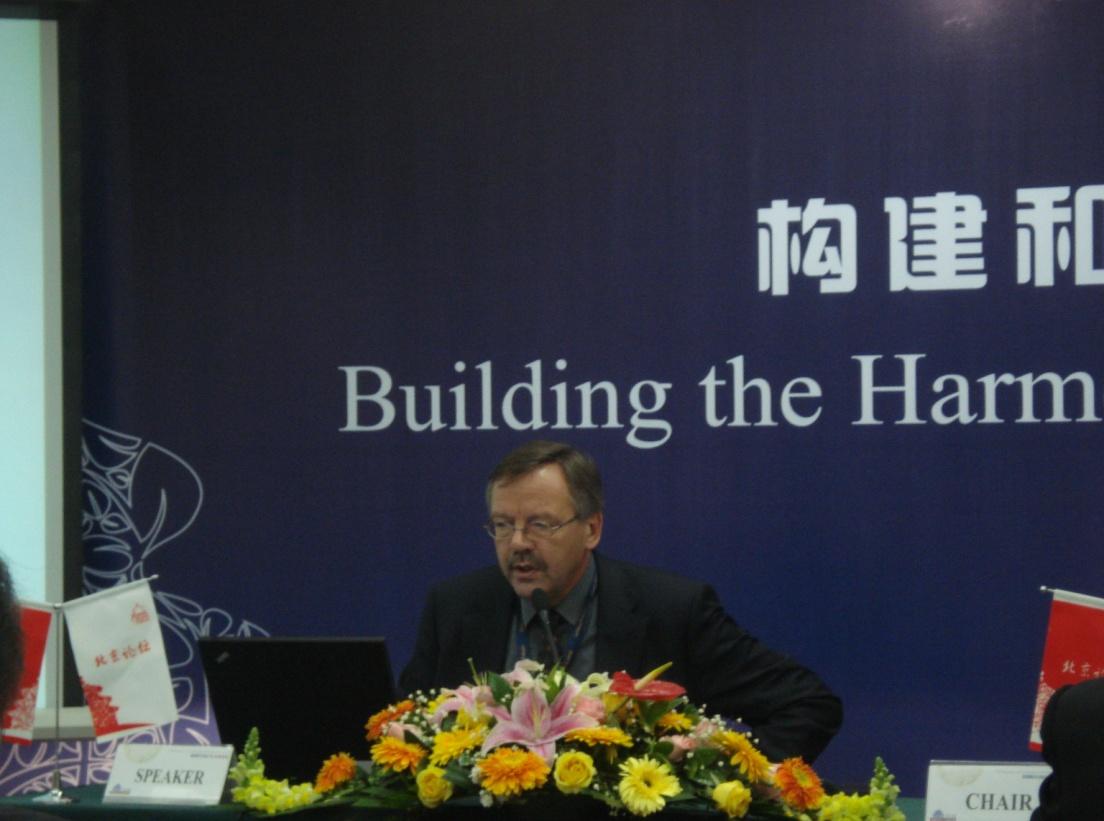Peking University, Nov. 7, 2010: On the morning of Nov. 7, discussions around the theme Building the Harmonious World Cities at Beijing Forum 2010 stepped into the last session. At Peking University Yingjie Overseas Exchange Center, four scholars from the Netherland, Thailand, and China delivered speeches on their respective urban researches.
The first speaker, Professor Sako Musterd from University of Amsterdam, expressed his anxiety on the inequality in European cities, which tended to be associated with concepts such as segregations and exclusions of people - categorized on ethnic or socio-economic dimensions. As he clarified, the governments should opt for a change into neo-liberal welfare models where the redistributions of affluence would occur.

Prof. Sako Musterd
Professor Ni Pengfei from the Chinese Academy of Social Sciences (CASS) reinterpreted the case of Beijing. After reviewing the theory of urban competitiveness and world cities, he compared the Chinese capital with other world-famous metropolises, according to the urban competitiveness model and related data. He also suggested several policy changes, such as building a city brand, constructing a service-oriented administration system, and fostering diversified cultures.
Prof. Ni Pengfei
Then, Professor Rahuth Rodjanapradied from Faculty of Architecture, Chulalongkorn University, introduced the example of Satul-Songkla to illustrate his positive attitudes towards the sustainability of world port cities. Based on his study on urban logistics planning, the new route - performed as a land bridge - would save at least five days for freight transportations of ocean liners passing Singapore Strait. Accordingly, he advised other port cities to consider the environmentally ideal geographic and strategic position in the regions around.
Prof. Rahuth Rodjanapradied
Professor Xue Ling from PKU School of Government talked about his economic model of spatial structures of metropolitan commerce, which involved factors like monopolistic competitions, scale economy, spatial costs, and product differentiations. In his eyes, traffic acted as a double-edged sword in urban spatial structures - promoting the boom of new cities, while paralyzing old ones at the same time.
Prof. Xue Ling
After the Q&A section, the panel session drew to an end. During the three-day forum, over 20 scholars gave reports successively, revealing their sparks of genius during interaction with each other.
Reported by: Jin Ludi
Edited by: Jacques





